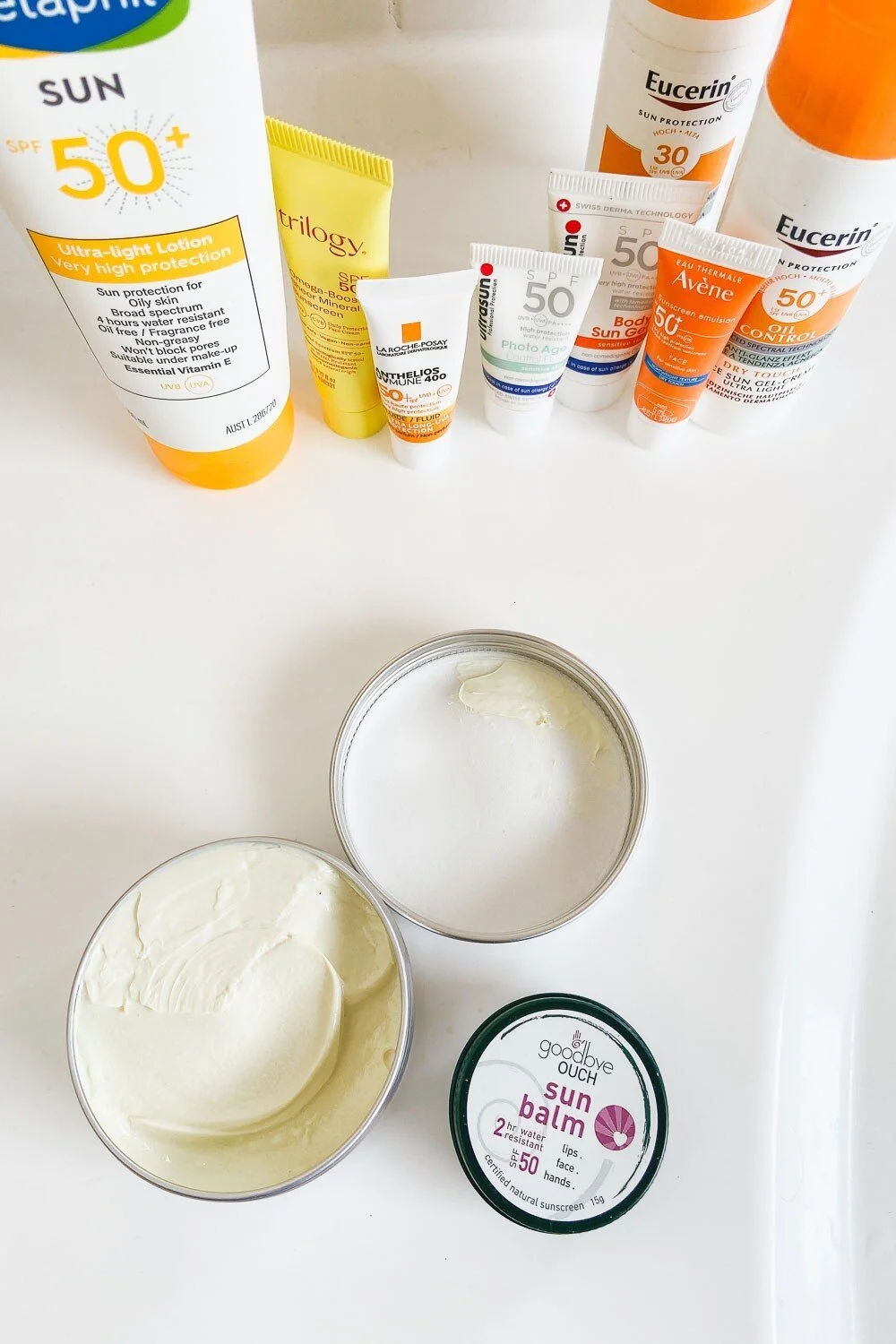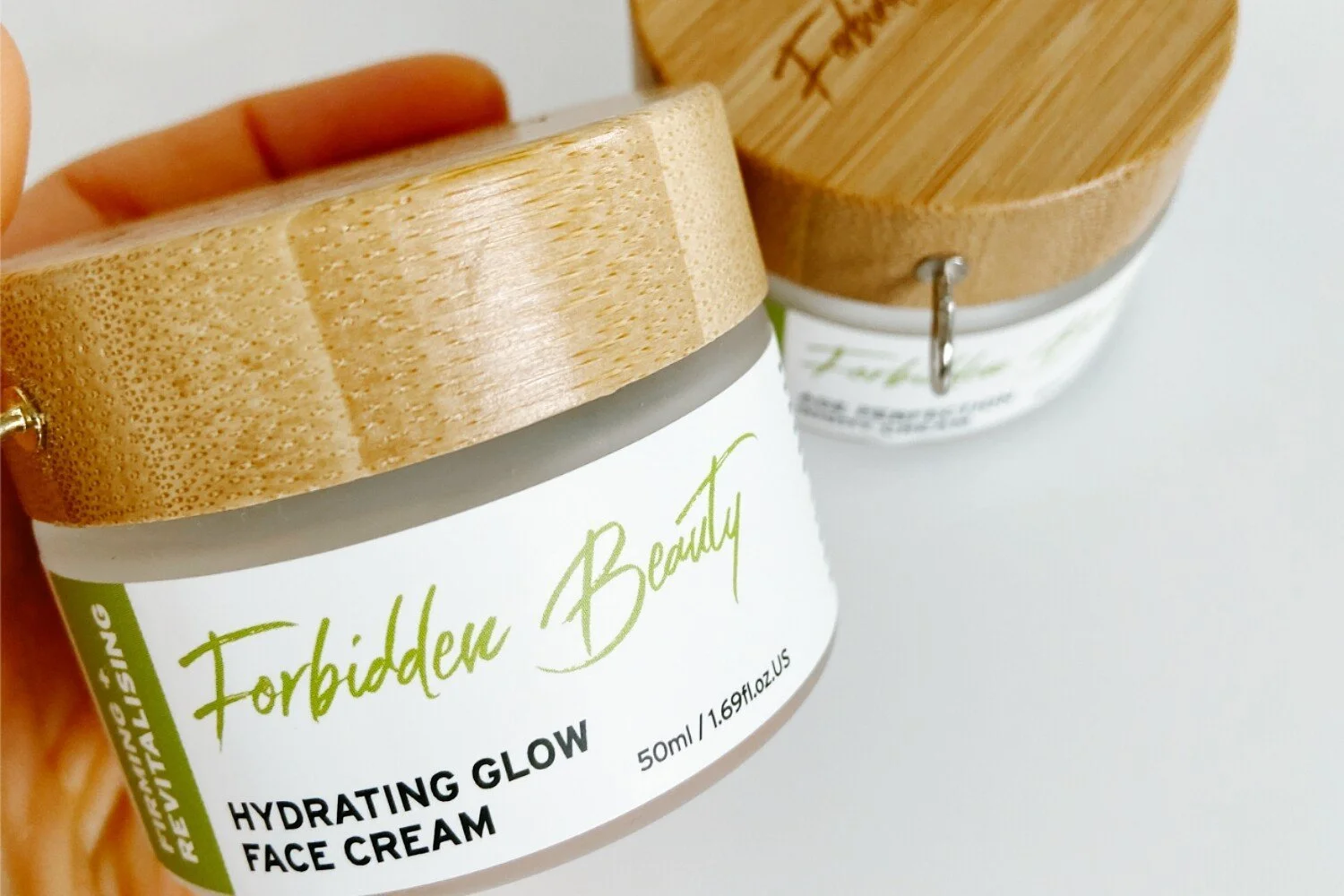Sun Protection and Skin Care: Natural and Effective Sunscreens (that don't suck)
I have a love-hate relationship with the sun. It can be a double-edged sword, especially when it comes to our skin health. While those warm rays feel good on a cold day and the benefits of Vitamin D from the sun are well documented, the sun comes with a side of UV exposure that can lead to a variety of skin issues, from premature aging to serious concerns like skin cancer.
When I returned to NZ in the middle of Summer a couple of months ago, this set off a quest in me to find the “perfect” sunscreen. A sunscreen that not only protects my skin but also aligns with my commitment to natural, eco-friendly living, AND that isn't greasy and makes me want to wash it off right after putting it on.
It’s tricky, and navigating ingredients makes it even harder. So, while I haven’t found the holy grail of sunscreens yet, I have (for now) found something I’m happy with and can share a few insights with you.
However, if you have found the “perfect” sunscreen that matches all or most of the characteristics below, please share! It can be so time-consuming, frustrating and challenging to navigate the sunscreen landscape.
Non-negotiables that I look for in a sunscreen (in no particular order):
Feels good on my skin, i.e. not greasy, oily, sticky
Non-harmful ingredients (or least harmful possible)
Effective in protecting against both UVA and UVB rays
Other important features I look for (while being aware that getting everything in one sunscreen is near impossible to find):
Not harmful for the environment or animals
Doesn’t stain my clothes
Why Sun Protection is Non-Negotiable
Before we explore sunscreen options, it's crucial to understand why sun protection is so important. UV rays can penetrate and damage the skin, leading to sunburn, DNA damage, and a breakdown of collagen, which keeps our skin looking youthful. Regular sunscreen application is one important part of your defense (along with protective clothing and staying out of the sun altogether during peak hours if you can), acting as a shield that prevents these rays from causing harm.
Natural and Reef-Safe Sunscreens: A Win for Skin and the Environment
Skin care should be just as holistic as a healthy diet and lifestyle, so I gravitate towards natural and reef-safe sunscreens. These products are formulated without harmful chemicals like oxybenzone and octinoxate, which have been linked to coral reef degradation, AND aren’t good for your health.
Instead, they use minerals like zinc oxide and titanium dioxide to physically block UV rays, offering protection without compromising our oceans.
My Current Go-To Sunscreens and Sun Protection Routine
Sunscreen for the Face
1. Goodbye Ouch Sun Balm SPF50 Broad Spectrum
Pros:
Well researched and effective
Safe and natural
No animal testing
Brand values align with my own
Family-run business, personal brand
Works for sensitive skin
I feel confident putting it on my face, including lips and around eyes (non-irritating)
Nourishing for my sensitive skin, especially on my nose where my skin barrier is probably compromised and my skin tends to peel
Cons:
A little greasy, although I’ve found it’s better than some other natural sunscreens I’ve tried and you don’t need to apply a huge amount
While it leaves no white cast, it can look a bit like wearing slightly pink eyeshadow and the sunscreen ends up sitting in those little creases around your eyes
More expensive than I’d like - too pricey to use on my entire body
When I use it:
Whenever I don’t plan on wearing makeup or going out for any special occasion
If I’m just going for a walk or a swim and don’t mind the slight greasiness/oily look on my face
I only use it on my face, not my entire body
I almost always use it around my eyes and on my lips, even if I’m wearing makeup and using another sunscreen on the rest of my face
Sunscreen for the Face
2. Eucerin Sun Face Oil Control Dry Touch Gel-Cream SPF 50+ UVA/UVB
Pros:
Really feels dry to the touch and light on my skin (definitely its biggest pro and the best sunscreen I’ve tried for a good skin feel)
Can easily use it under makeup
Free from octinoxate and oxybenzone - compliant with the Hawaii Reef Bill
Contains licorice root extract (antioxidant and skin-soothing properties)
Good for sensitive skin; has never made me break out or given me any issues whatsoever
Cons:
Questionable ingredients that are absorbed into the body
While Eucerin says on their website that they’re cruelty-free, they might still test their products on animals when required by law
When I use it:
This sunscreen is definitely not perfect and doesn’t align with all of my values, BUT I love that it’s not greasy at all and feels like I’m not wearing any sunscreen.
I use it whenever I go out, wear makeup, and/or don’t want my face to look shiny or feel greasy.
Sunscreen for the Body
Cetaphil Sun Ultra-Light SPF 50+ UVA/UVB
Pros:
Not oily, feels good to the touch
Ingredients are the least harmful you can get if you don’t want zinc; no avobenzone, oxybenzone, octinoxate and PABA
Reef safe
Affordable for use on entire body
Good for sensitive skin
Cons:
Can stain white clothes yellow
Ingredients aren’t 100% perfect
They may also test on animals where required by law
When I use it:
I use it on my body whenever I’m out in the sun during peak hours or haven’t covered up parts of my body.
Much more affordable for using it on my entire body than Goodbye sunscreen above ($ per 100ml)
While it’s not perfect, I’ve found it to be a good compromise so far between safety, skin feel, and ingredients
Cetaphil also has a kids version, which is a bit cheaper per 100ml, which I have yet to try.
Sunscreens I still want to try:
Trilogy SPF 50+ Omega-Boost Sheer Mineral Sunscreen - Update: I have tried this one. It’s ‘meh’ for me. Not great, not bad. I find it a little greasier than my Goodbye sunscreen (see above), but probably personal preference.
Avène SPF 50+ Sunscreen Emulsion
La Roche-Posay Anthelios UVmune 400 Invisible Fluid SPF 50+
Ultrasun Body Sun Gel SPF 50+
Ultrasun Photo Age Control Fluid SPF 50
I don’t know anything about these sunscreens and haven’t done any research on them yet, so can’t say what they’re like. I’ll report back once I’ve tested them :)
Other Natural Sunscreen I’ve tried and did NOT like:
Little Urchin Sunscreen: Super oily and greasy, and not sure if it’s really effective
A few others that I honestly can’t remember right now ;) (I’ll add them here when my memory comes back)
Other Top Picks for Natural Sunscreen I’ve found during research (but haven’t tried myself):
Thinksport Safe Sunscreen SPF 50+
Broad-spectrum UV protection and water resistance. It's free from harmful chemicals, so is safe for the body and the environment, and has high protection.
Badger Balm SPF 30 Unscented Sunscreen
Badger Balm’s sunscreen is supposed to be gentle, with only a handful of ingredients and no added fragrance. Perfect for sensitive skin and if you’re looking for simple, effective protection.
Coola Mineral Sunscreen SPF 30
Coola is a lightweight, matte-finish sunscreen with plant-derived ingredients and an antioxidant-rich formula. This could make it feel more like skin care rather than just a “chore”..
La Roche-Posay Anthelios XL Ultra-Light Fluid SPF 50+
La Roche-Posay’s ultra-light fluid could be great if you prefer a barely-there feel, like me. It offers high protection, is suitable for sensitive skin, and has a non-greasy formula that's perfect under makeup.
Sun Bum Mineral SPF 30 Sunscreen Lotion
Sun Bum’s mineral line is known for its moisturizing properties and good-for-your-skin ingredients. Could be a good option for daily wear on medium-sunny days.
Making the Right Choice
Choosing the right sunscreen can be SO challenging, especially when you care (too much?) about meeting too many priorities all at once. It’s not just about SPF numbers, there’s so much to consider, and we each have different preferences, skin types, and priorities.
Ideally we can each find a formula that we love to apply every day and one that respects the planet as much as it does your skin. I encourage you to explore these options, keeping in mind your skin type, lifestyle, and environmental impact.
Sun Protection Resources
The EWG has a guide to finding the perfect sunscreen for you - see EWG’s Guide to Sunscreens here.
If you live in New Zealand, visit Consumer’s Sunscreen Guide and use Consumer’s Sunscreen Database to make an informed decision for yourself.
Becky from Goodbye has curated a list of sun care resources here.
Your Experience
Have you discovered a natural and effective sunscreen that you swear by? Or perhaps you're still on the hunt for that perfect match? I’d love to hear about your experiences and preferences. Sharing insights and recommendations can help us all make informed decisions, making sure our skin stays protected and we can care for the wellbeing of our beautiful planet at the same time.
Lastly, remember, sun protection is a crucial step in any skin care routine, not just for beauty, but for health!











